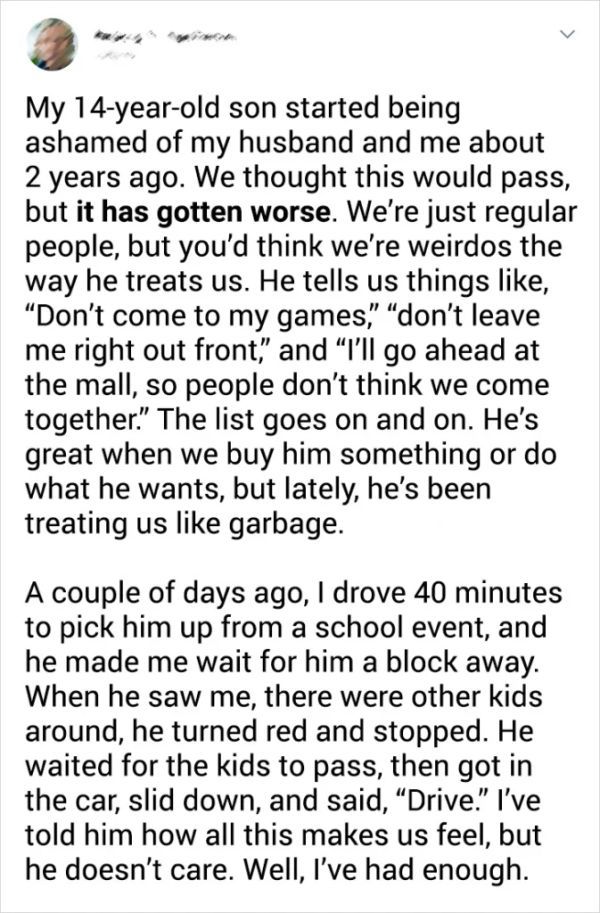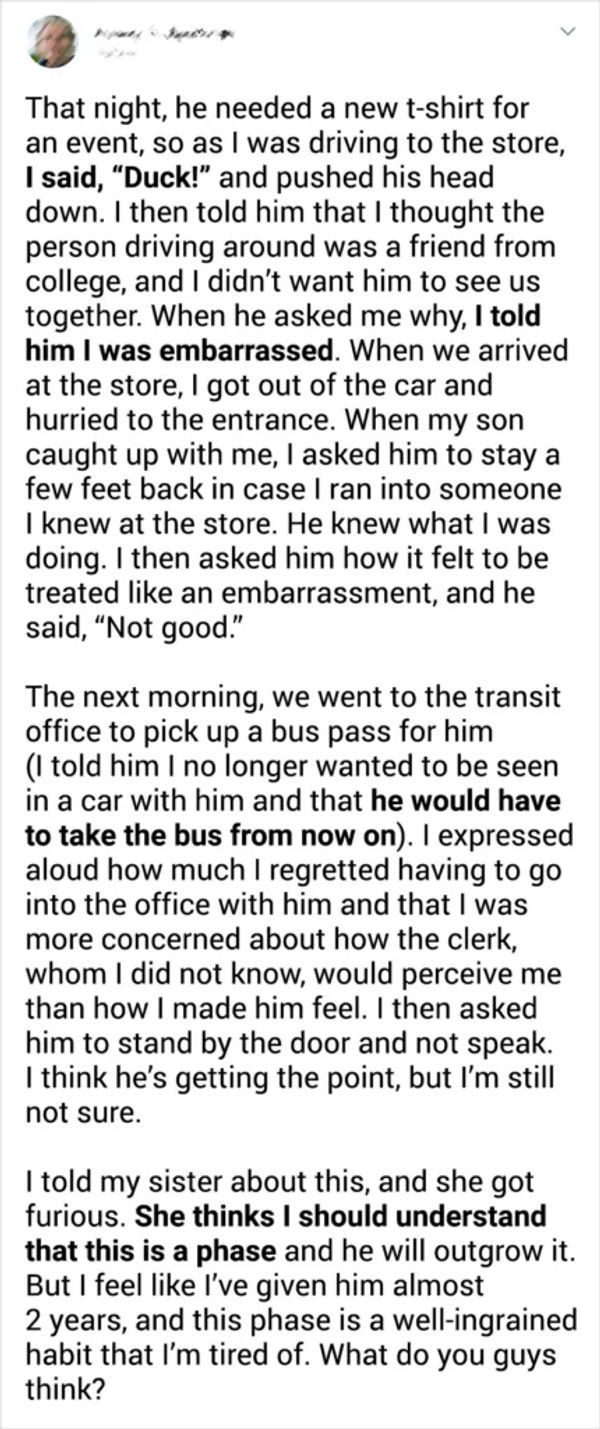Adolescence can be a tumultuous time for both teenagers and their parents. It is a phase of self-discovery and striving for independence, which often results in emotional ups and downs.

As parents, it can be challenging to strike the right balance between granting freedom and asserting authority. Open communication becomes crucial in navigating this complex relationship.
A Lesson in Parenting: Teaching Through Experience
A mom recently shared her story about how her teenage son felt ashamed to be seen with her and her husband.

He even went as far as asking to be dropped off a block away from his destination to avoid his friends knowing his parents were giving him a ride. Instead of getting upset, the mom decided to teach him a lesson by reciprocating his behavior.
Strategies for Dealing with a Similar Situation
If you find yourself facing a similar situation with your own teenage child, here are some strategies to consider:

1. Don’t take it personally
It’s important to remember that adolescence is a challenging time and your child’s behavior is a natural part of their growth. Their actions do not define your worth as a parent. Instead of internalizing their behavior, try to understand it from their perspective.

2. Avoid conflict
Respectful communication is essential, but there may be moments when your child expresses themselves inappropriately. Instead of engaging in arguments that may escalate the situation, consider ending the conversation. By maintaining your composure, you can create a safe space for future discussions.

3. Respect their need for independence
Teenagers crave independence, and sometimes the more you try to be close, the more they may resist. To build a better relationship, offer them the autonomy they desire. Let them decide when and where they want to spend time with you. By giving them space, you are showing that you trust them and respect their choices.
4. Connect with other parents
It can be beneficial to connect with fellow parents who are also navigating the challenges of raising teenagers. Sharing experiences and advice can provide valuable insights and support. You might find comfort in knowing that you are not alone in this journey.
5. Remember your own teenage years
Empathy plays a crucial role in understanding your child’s perspective. Take a moment to reflect on your own teenage years and remember the challenges you faced. This will help you approach your child with understanding and patience, knowing that their actions are not personal attacks but rather a part of their own growth and development.
By adopting these strategies, you can foster a healthier parent-teenager relationship. Remember, you are not alone in this journey. Share this article with your family and friends on Facebook to help other parents facing similar challenges. Together, we can navigate this transformative phase with love and understanding.





